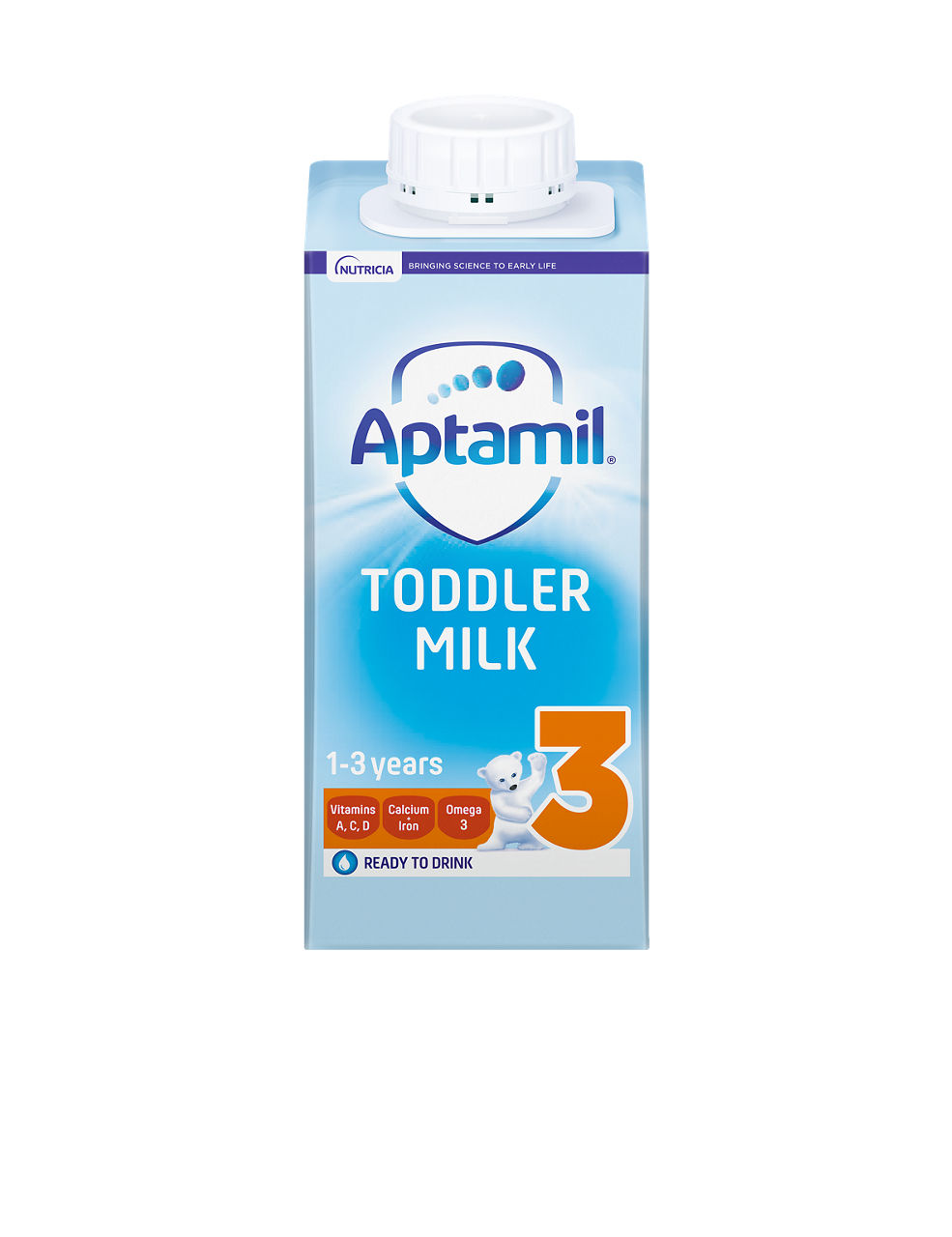
Aptamil Toddler milk 1-3 years (ready to feed)
Aptamil® Toddler milk 1-3 years is a fortified milk drink for young children. It is designed to help meet the nutritional needs of toddlers aged 1-3 years as part of a varied, balanced diet. In addition to key vitamins A, C & D, Aptamil® Toddler milk contains:-Calcium for normal growth and development of bone-Iron to support normal cognitive development-Iodine to help support the normal growth of children.
